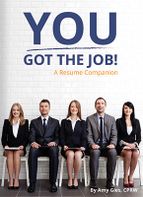
When it comes to getting hired, first impressions matter.
Fortunately, there are several ways to make a positive first impression on your future employer both online and in person. Whether you use your resume, LinkedIn profile, or biography, you should consider these application materials as value propositions — because essentially they are.
A value proposition is a business term that encompasses materials used to market a service or product. Companies use value propositions to persuade prospective clients to choose them based on the value they can bring to the client’s life or business. You can use this strategy in your application materials. Aim to persuade potential employers by demonstrating the value you can bring to their brand.
What Values Should You Highlight?
When you begin your job search, it can be challenging to know what qualities to highlight in your application materials. Editing your resume and LinkedIn profile to list your most up-to-date technical skills and qualities is an ongoing process, but there are some essential skills you can use to improve your resume at any stage:
Candidate Skills
Once you’ve homed in on the jobs you want, one of the first steps toward demonstrating your worth is including the right hard skills. These are technical abilities you’ve gained through education or experience — such as computer skills, data analysis, or editing.
How do you know which hard skills to include? Start by considering the company goals of the organization you’re interested in. Gaining an understanding of the work it does and the ways you can concretely contribute to its goals will put you on the right track when crafting your resume and professional profiles.
When listing your hard skills, the goal is to demonstrate why you would provide a skill-based fit for the company. Craft your resume to include your most relevant work experience. Make sure to go into detail about the hard skills you have, how you’ve earned them, and the ways you have amassed a proven track record of using them in a professional setting.
Cultural Skills
While hard skills are certainly valuable, cultural skills can be equally as important during the hiring process. How can you demonstrate to your prospective employer that you will be a great cultural fit for their organization? You can highlight an awesome cultural fit by clearly emphasizing the right soft skills — such as time management, organization, initiative, and leadership.
One way to tailor the soft skills on your resume to match the needs of your employer is to clearly display that your employee goals align with the company’s goals. A cultural fit is based on the way you will mesh with other employees, contribute to positive workplace culture, and inspire continued productivity. When your goals and values as an employee align with the goals of your employer, a cultural fit is natural.
Value-Added Statements
To paint an undeniable picture of the benefit you will bring to your prospective employer, it’s important to use value-add statements — also known as value-added statements — to your resume, profile, and bios.
In business, value-added statements are documents that outline the positive outcome a product or service can bring to its customers, often monetarily. When crafting your resume and profiles, using a value-added strategy can quickly elevate your application materials.
On your resume, you can incorporate value-added statements in the description of your work experience. For example, rather than simply mention that you’ve improved sales at your previous companies, include specific examples with strong action words. “Boosted sales by 3% over six months” provides a concrete example of the value you bring to a company.
Whenever possible, use specific details to describe your soft skills, too. For example, “managed a team of 20 professionals with collaboration and leadership skills” is more persuasive than simply listing “collaborative” or “strong leadership skills.”
Once you’ve crafted value-added skills for your resume, you can easily weave them into your professional profiles and bio to paint a vivid picture of the worth you will bring to an employer.
How Capstone Resumes Can Help
The way you craft your resume, LinkedIn profile, and professional biography will depend on the industry and type of job you’re vying for. No matter what your professional goals are, it is important to illustrate the concrete ways you can help employers reach their goals.
It can be challenging to identify which of your skills and qualities align most with potential employers. Making these connections can help you land among the top applicants at your ideal company. Fortunately, Capstone Resume Services can help you zero in on your most important strengths and showcase them to prospective employers.

